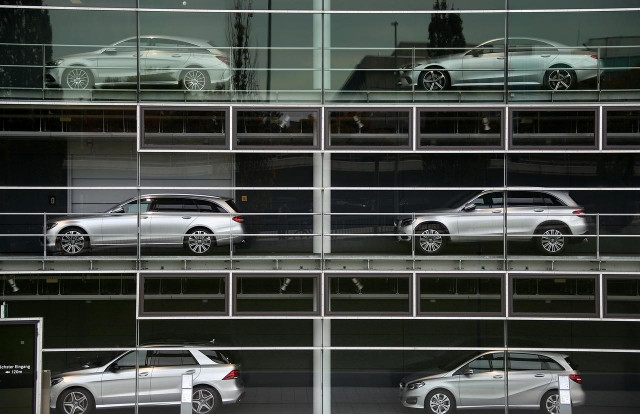Experts attribute rising car prices to input costs
Besides expensive inputs, surge in freight rates, rupee fall deal blow to industry

Experts in the automobile sector have agreed that car manufacturers of Pakistan are facing inflationary pressure due to a surge in input costs, exponential increase in freight charges, rupee devaluation and hike in petroleum and steel prices.
Last week, the carmakers passed on such pressures to their customers as several automakers announced a significant increase in prices of vehicles.
Recently, an original equipment manufacturer (OEM) increased prices of its vehicles in the range of Rs0.2-1.2 million while another Japanese car manufacturer announced increase of Rs250,000-400,000 in prices of its vehicles.
Other carmakers are geared up to follow suit.
“Freight rates have spiked 250% in a year,” said auto industry expert Syed Zafar Ali in comments to The Express Tribune. “The uptick in freight charges is impacting almost all sectors and the automobile industry is no exception.”
He noted that since the outbreak of the pandemic, car prices had been on an uptrend globally, adding that the global supply chain disruption and historically high transport costs were the main reasons behind the frequent price revisions.
“In Pakistan, the situation is grave because these problems are compounded by rupee devaluation, high duties and multiple taxes on the sector,” he argued.
Read Car assembler jacks up prices
The manufacturers are compelled to pass on the sharp increase in the cost of production and raw material prices to the customers. For the same reason, the country witnessed almost 50% rise in car prices in the last two years, he said.
In addition, the price of steel in the international market has jumped as well and this is one of the components needed for the production of vehicles.
Steel scrap prices have depicted a sharp spike mainly due to geopolitical issues as rates have increased by 28% since the start of current month.
This has pushed the local steel manufacturers to jack up prices in a bid to maintain their margins. As a result, the price of steel has risen by 55% in the past 12 months.
“China, Japan and Russia, the top three steel exporters of the world, are also experiencing price pressure for the past couple of months due to supply chain disruptions,” said SM Engineering CEO Ishtiaq Siddiqui. “These were followed by the Russia-Ukraine conflict, which exacerbated the situation because both countries are major steel exporters.”
Sanctions by the European Union on Russian steel manufacturers have affected their production while Ukraine’s output has halted as a result of security concerns.
In addition, a resurgence of Covid cases in China impacted its steel production and compounded the problem for the world.
“Increase in prices of oil and petroleum products along with the surge in steel prices has badly impacted the local car manufacturing firms,” Siddiqui said, adding that the carmakers were forced to raise prices of their vehicles.
Published in The Express Tribune, April 8th, 2022.
Like Business on Facebook, follow @TribuneBiz on Twitter to stay informed and join in the conversation.



















COMMENTS
Comments are moderated and generally will be posted if they are on-topic and not abusive.
For more information, please see our Comments FAQ